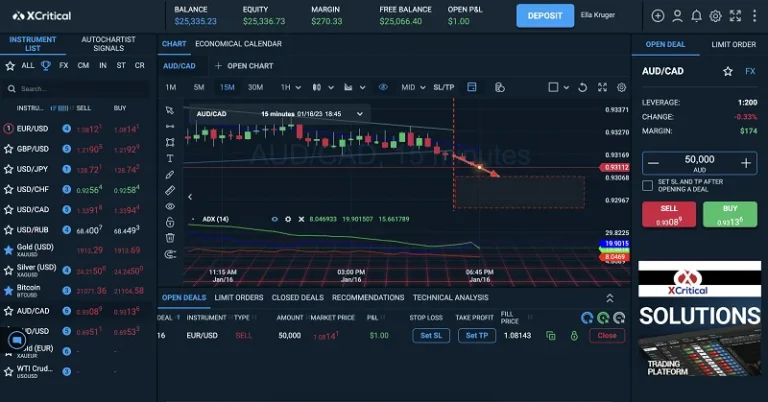Content
In finance, Web3 technologies facilitate transparent and secure transactions, making it easier to implement ReFi principles. Smart contracts, a hallmark of blockchain technology, enable the creation of decentralized finance (DeFi) platforms, allowing for the seamless execution of ReFi investment strategies. Regenerative Finance (ReFi) is at the forefront of a groundbreaking financial paradigm regenerative finance that has emerged recently.
- Environmental regeneration initiatives and financial investments are frequently included in ReFi.
- Public goods, such as clean air or fresh water, are those which are non-excludable and non-rivalrous.
- As with any crypto project, you should research the team, road map, and reputation before allocating any funds to it.
- The finance industry, including banks and lenders, is largely ignoring its impact on the environment.
- It goes far beyond just minimizing water use, removing harmful pesticide application, or improving soil health.
The Potential Risks of Regenerative Finance
Although it may seem like a new buzzword, regenerative economy has roots that can be traced back to the early 20th century. Eventually, the concept grew from an idea to an actual framework for banking institutions. Universal basic income, or UBI, is a system where everyone is given a set amount https://www.xcritical.com/ of money on a regular basis. It’s conditionless and available to anyone, regardless of their background, education, nationality, or income. UBI can function as a safety net for people, and it is supposed to ensure that everyone has a basic standard of living and can cover basic needs.
Conventional & regenerative economic systems
Some crypto projects are focused on reducing carbon emissions as well as helping community-led initiatives fight climate change. Organizations such as the Climate Collective help raise awareness for projects that use blockchain technology to deploy regenerative financial solutions. There is a promising trend of environmental, social, and governance (ESG) factors Cryptocurrency wallet in the investment world. Unfortunately, the focus is still too much on reducing detrimental impacts rather than achieving positive impacts. Even when investing is concentrated on making a positive net impact, it focuses too narrowly when it defines its targets. Additionally, what is often not taken into account is how an outcome is created and what stakeholders are the ones benefiting.
Principles of Regenerative Finance
By aligning financial rewards with biodiversity, Regen Network is proving that protecting nature can make good business sense. ReFi promotes the expansion of community banks and credit unions that put their customers first. These banking institutions are more inclined to fund projects that address needs in the community. We’re dedicated to making tough financial topics easy, ensuring you can confidently oversee all your investing and financial choices.
The Regenerative Finance movement is emerging as one potential way to address many problems of our time. The climate crisis is posing one of the biggest threats that humanity has ever faced. People are becoming more and more aware of issues of inequality, exploitation, and unsustainable industrial practices. Over the last few decades, the limits of many elements of the world’s economic models have become apparent. Our economic system lacks the right incentives, and there’s no way to coordinate at the level needed in a globalized world.
The concept of a regenerative economy is an evolving one, tracing its roots deep into the intellectual soil tilled by economists and philosophers over the past century. This economic philosophy is built on the idea of renewing and revitalizing what we’ve lost environmentally and socially, conserving what we still have, and fostering sustainable prosperity. John Fullerton’s 2015 paper “Regenerative Capitalism” encapsulated this approach, which considers the broader impact of economic activity on the environment and society, areas often neglected by traditional capitalist models.
This transformative power of ReFi is why it matters more than ever in today’s world. As the importance of sustainability in finance grows, governments and regulatory bodies are increasingly focusing on promoting and supporting sustainable investment practices. This regulatory attention is leading to the development of frameworks and standards that encourage more responsible and sustainable financial activities. The policy implications of ReFi are significant, as they shape the future direction of the finance industry and its impact on the world. Younger investors, in particular, are drawn to investments that align with their values. They are more likely to invest in companies that prioritize sustainability and social responsibility.
There are always risks when investing in alternative assets such as crypto; regenerative finance isn’t immune to these. Michael Kramer, managing partner and director of social research at Natural Investment Services, introduced the concept of “regenerative investing” in 2003. He referred to the new investment style as regenerative because it pulled resources into projects that mimicked operations of nature to recycle energy and matter. ReFi projects use raised capital to attempt to provide a positive financial impact on the world. This can include money earned from crypto token sales or additional funds raised within the project for specific purposes.
By migrating the carbon market to the blockchain, many of these problems are immediately resolved based on the intangible benefits of the technology. On-chain carbon credits are traceable and immutable, meaning that no two people can claim the same credit twice, creating overall process transparency. Tokenising an underlying asset provides unique ownership through a smart contract.
Regenerative finance (ReFi), a new approach to financing that prioritizes sustainable development, is poised to transform the world. ReFi has become a symbol of innovation and user-centered design, making it a transformational force in the blockchain and cryptocurrency space. With its forward-thinking approach to redefining lending, borrowing, and yield farming, ReFi is empowering individuals and businesses to take control of their financial futures in the decentralized world.
The impact of ReFi could see the shift from an economy that depletes our planet’s resources to a regenerative economy that seeks to replenish and renew. ReFi is a new financial notion that challenges the conventional approach to finance where the yardstick for success is no longer just monetary growth. ReFi supports companies and people in improving the use of resources by reducing waste and prolonging product and asset lifespan to save money for fewer detrimental effects on the environment.
The good news is that rather than throwing the baby out with the bathwater, capital can be used as a dynamic and purpose-driven tool that improves social and ecological systems. By its very nature, regenerative finance (ReFi) can shift society from being degenerative, skip over being sustainable at unsustainable levels, and jump straight into being regenerative. Web3 projects are now attempting to weave these regenerative principles into their frameworks, aspiring to create not only economic but also social and environmental regrowth.
Finally, it provides a way for small businesses to build a sustainable future for themselves and their communities. In conclusion, regenerative finance is an excellent investment strategy for small businesses and entrepreneurs to grow, succeed, and make a positive impact on the world. Regenerative Finance (ReFi) is a new way of handling money that focuses on making the world better for people and the planet. Unlike Traditional Finance, which often focuses only on making money, ReFi aims to support projects that help the environment, improve communities, and create long-lasting positive change. ReFi uses new technologies like blockchain to make sure financial activities are transparent and can be tracked. This makes it easier for people to invest in projects that focus on things like clean energy, restoring nature, or supporting local communities.
It’s not just about avoiding harm; it’s about actively contributing to ecological restoration. This approach involves funding projects that support biodiversity, combat climate change, and promote sustainable resource use. It’s an investment strategy that recognizes the interdependence of financial health and environmental well-being.


